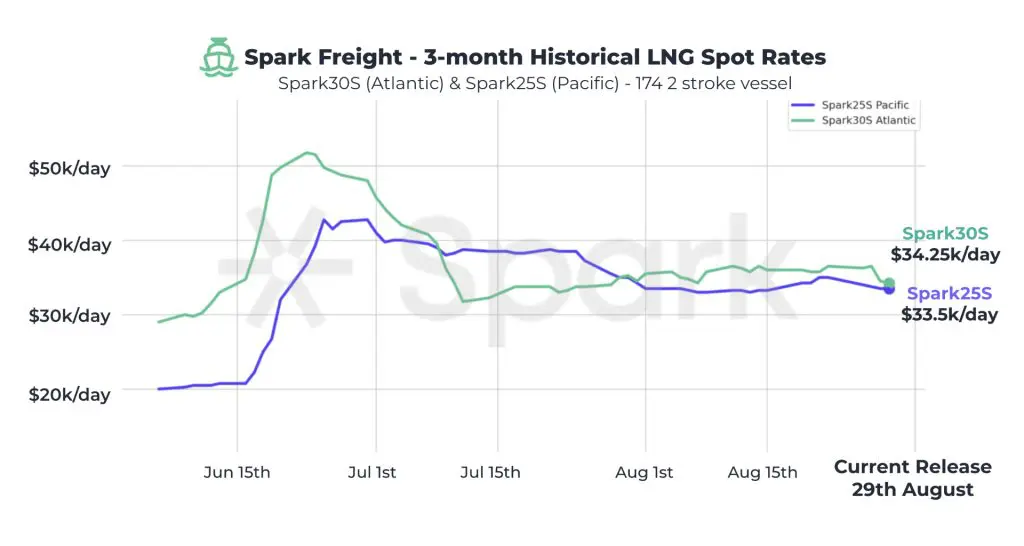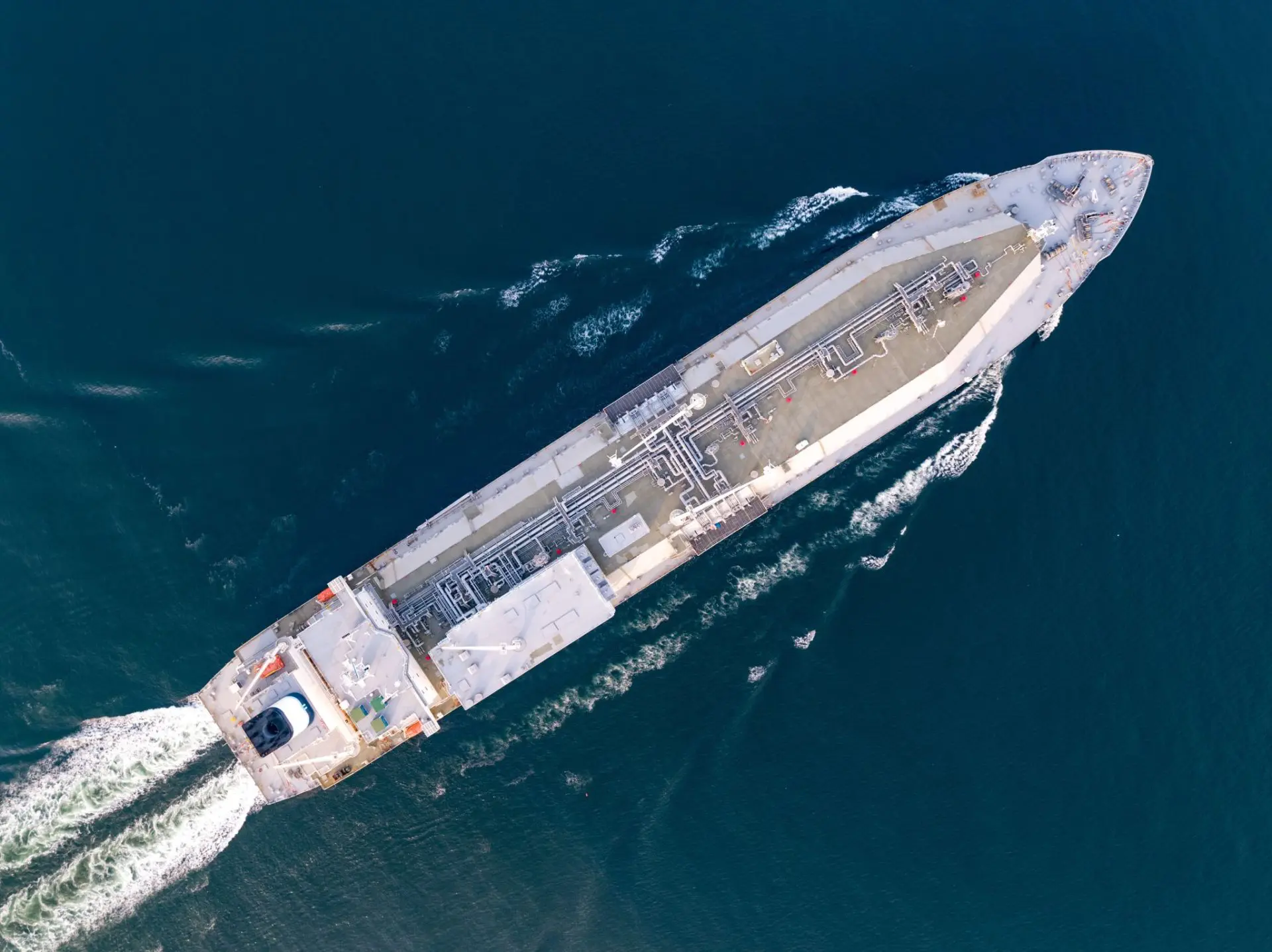This story requires a subscription
This includes a single user license.
“Global LNG freight rates softened this week, with Spark30S (Atlantic) priced $34,350 per day and Spark25S (Pacific) at $33,500 per day,” Spark’s commercial analyst, Max Glen-Doepel, told LNG Prime on Friday.

Last week, Spark30S (Atlantic) rates were $36,500 per day and Spark25S (Pacific) rates $35,000 per day.
European prices drop
In Europe, the SparkNWE DES LNG decreased compared to last week.
“The SparkNWE DES LNG front month price for September decreased this week by $0.545 to $10.264/MMBtu, driven mostly by the decrease in the front-month TTF,” Glen-Doepel said.
He said that the basis to the TTF “widened to $0.530/MMBtu, the largest since May of this year.”
Moreover, “the US front-month arb to NE-Asia (via the Cape of Good Hope) widened for the third consecutive week, by $0.025 this week, pricing in at -$0.226/MMBtu and still incentivising US cargoes to deliver to Europe,” Glen-Doepel said.
“Similarly, the US front-month arb to NE-Asia via Panama widened this week, also pointing to Europe, assessed at -$0.061/MMBtu,” he said.

Data by Gas Infrastructure Europe (GIE) shows that volumes in gas storages in the EU continued to rise and were 76.64 percent full on August 27.
Gas storages were 74.76 percent full on August 20, 2025, and 91.96 percent full on August 27, 2024.
JKM
In Asia, JKM, the price for LNG cargoes delivered to Northeast Asia in October 2025 settled at $11.205/MMBtu on Thursday.
Last week, JKM for October settled at 11.550/MMBtu on Friday, August 22.
Front-month JKM remained the same on Monday, and it dropped to 11.490/MMBtu on Tuesday, and $11.310/MMBtu on Wednesday.
State-run Japan Organization for Metals and Energy Security (Jogmec) said in a report earlier this week that JKM for last week “rose to high-$11s/MMBtu on August 22 from low-$11s/MMBtu the previous weekend.”
“JKM temporarily fell to the lowest level since late April as supply in Asia remained ample and demand subdued, but turned upward in the latter half of the week due to uncertainty over ceasefire negotiations between Russia and Ukraine,” Jogmec said.
“On the demand side, while Chinese inventories remained high, there were indications that Japanese buyers might become active in procurement due to hot weather and outages at a nuclear power plant,” it said.

